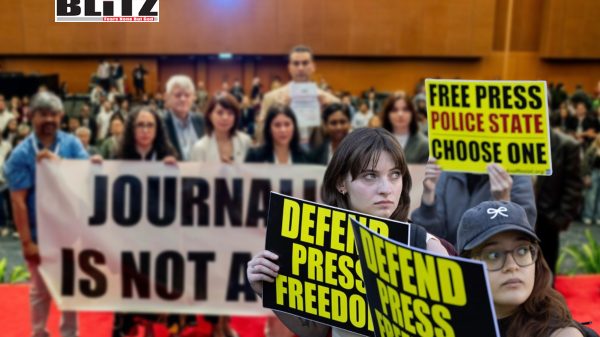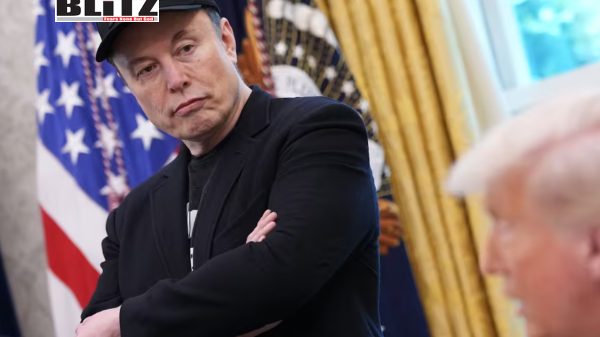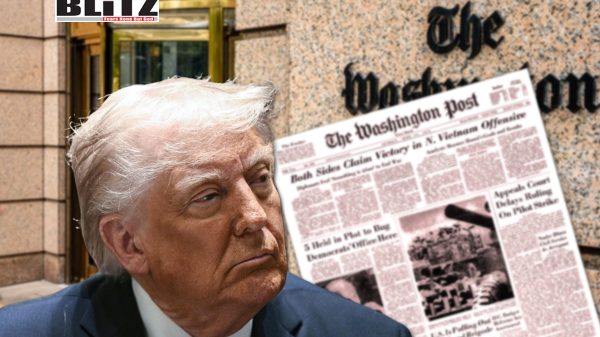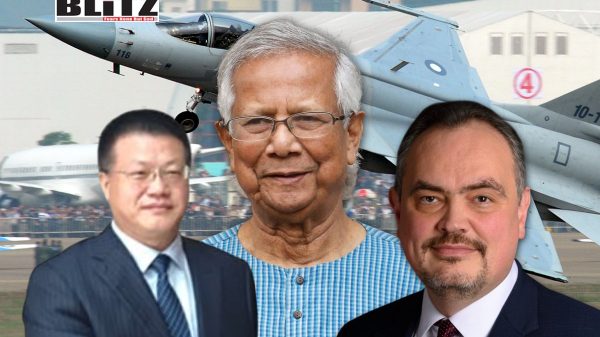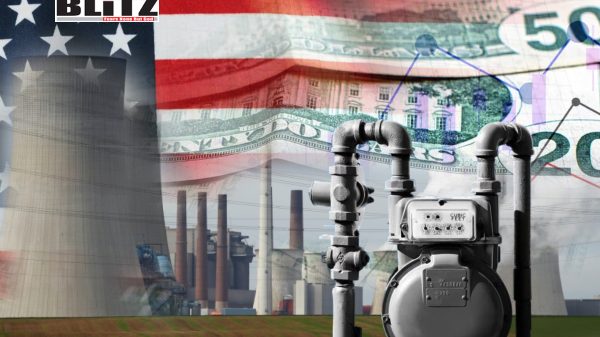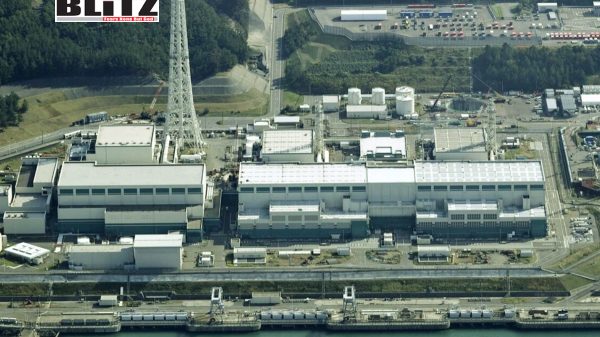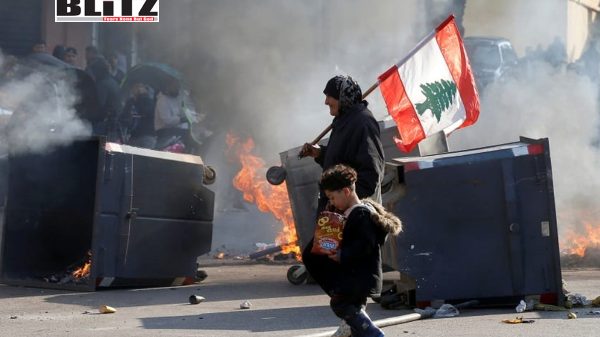Trump and Macron push for new approach to Russia-Ukraine peace
- Update Time : Wednesday, February 26, 2025
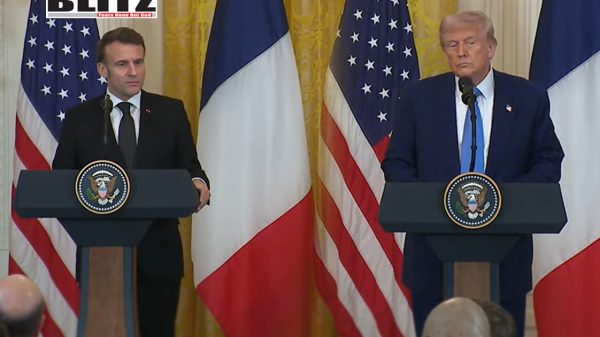
In a high-stakes meeting at the White House, President Donald Trump and French President Emmanuel Macron signaled a potential turning point in efforts to end the ongoing war between Russia and Ukraine. The bilateral discussions, which took place on February 24, were hailed by Trump as an “important step” toward achieving lasting peace, as his administration reopens dialogue with Moscow. The meeting also highlighted the evolving dynamics between the United States, Europe, and Ukraine, with both leaders emphasizing the need to stop the bloodshed and restore stability in the region.
Trump, who recently returned to the White House for a second term, has made it clear that resolving the Russia-Ukraine conflict is a priority for his administration. During the joint press conference, he underscored the historical alliance between the US and France, referencing France’s support during the American Revolution and World War II. “We’re now working on some very interesting developments, one in particular, as you know, the war between Russia and Ukraine,” Trump stated. “It’s time to end this bloodletting and restore peace, and I think we’re going to do it.”
Macron, the first European leader to visit the White House since Trump’s return, echoed the call for peace while emphasizing Europe’s readiness to play a larger role. “A lot of my European colleagues are ready to be engaged, but we do need this American backup because this is part of the credibility of the security guarantees,” Macron said. He stressed that a credible deterrence strategy is essential to ensure any peace agreement is respected, hinting at the need for both diplomatic pressure and military preparedness.
One of the key elements of the discussions centered on Trump’s relationship with Russian President Vladimir Putin. Trump revealed that one of his first calls upon returning to office was to Putin, signaling a departure from the previous administration’s more confrontational stance. “They want to end this war,” Trump asserted, adding that ongoing negotiations aim to secure a ceasefire or broader peace agreement. Russia’s Deputy Foreign Minister recently confirmed that preparations are underway for a potential meeting between Trump and Putin, raising expectations of direct talks between the two leaders.
However, Trump’s approach has sparked mixed reactions within the international community. While European leaders cautiously welcome the prospect of ending the conflict, concerns remain about the potential terms of any agreement. Macron warned that Putin might violate a negotiated peace, emphasizing the need for robust security guarantees to prevent further aggression. “Being strong and having deterrence capacities is the only way to be sure it will be respected,” Macron stated.
The meeting also highlighted growing tensions between Trump and Ukrainian President Volodymyr Zelensky. In recent days, Trump has publicly criticized Zelenskyy, referring to him as a “dictator” and questioning Ukraine’s continued reliance on US aid. Trump argued that Ukraine should offer something in return, specifically mentioning Ukraine’s reserves of rare minerals. This stance marks a significant shift from the Biden administration’s unconditional support for Kyiv, raising concerns among Ukraine’s allies about the future of American military and financial assistance.
Zelenskyy, for his part, has attempted to navigate the changing political landscape by signaling a willingness to make concessions. Over the weekend, he stated that he would consider stepping down as president if it facilitated Ukraine’s admission into NATO-a move that could reshape the geopolitical calculus in Eastern Europe. Nevertheless, Trump’s emphasis on securing economic benefits for the United States, including a potential rare minerals deal with Ukraine, has added a transactional dimension to the peace negotiations.
During the Group of Seven (G7) leadership call held earlier on Monday, Western leaders, including Canadian Prime Minister Justin Trudeau and other European heads of state, reiterated their commitment to supporting Ukraine. The call marked the third anniversary of Russia’s invasion, serving as a reminder of the conflict’s human and economic toll. Despite these expressions of solidarity, Trump’s pivot toward engaging with Putin has introduced a new dynamic that could reshape the West’s collective strategy.
In a post on Truth Social following the G7 meeting, Trump emphasized the shared goal of ending the war while reiterating his belief that the conflict would never have started had he been in office during Russia’s initial invasion. He also hinted at the broader economic implications of improved US-Russia relations, mentioning “major Economic Development transactions” that could follow a peace agreement.
The meeting between Trump and Macron comes at a critical juncture, as both leaders seek to balance their respective national interests with the broader goal of restoring peace in Europe. For Macron, the prospect of a negotiated settlement offers an opportunity to strengthen Europe’s security architecture while reducing its dependence on American military support. For Trump, the negotiations represent a chance to bolster his image as a peacemaker while securing economic benefits for the United States.
Looking ahead, Trump’s upcoming meeting with British Prime Minister Keir Starmer is expected to further shape the transatlantic approach to the Russia-Ukraine conflict. As Europe braces for potential shifts in US policy, the outcome of these diplomatic engagements will have far-reaching implications for the future of the conflict and the broader international order.
In the meantime, the people of Ukraine continue to endure the devastating consequences of a war that has claimed countless lives and displaced millions. Whether the renewed dialogue between Washington, Moscow, and European capitals will lead to lasting peace remains uncertain. However, the meeting between Trump and Macron on February 24 undoubtedly marked a pivotal moment in the ongoing efforts to end one of the most significant conflicts of the 21st century.



